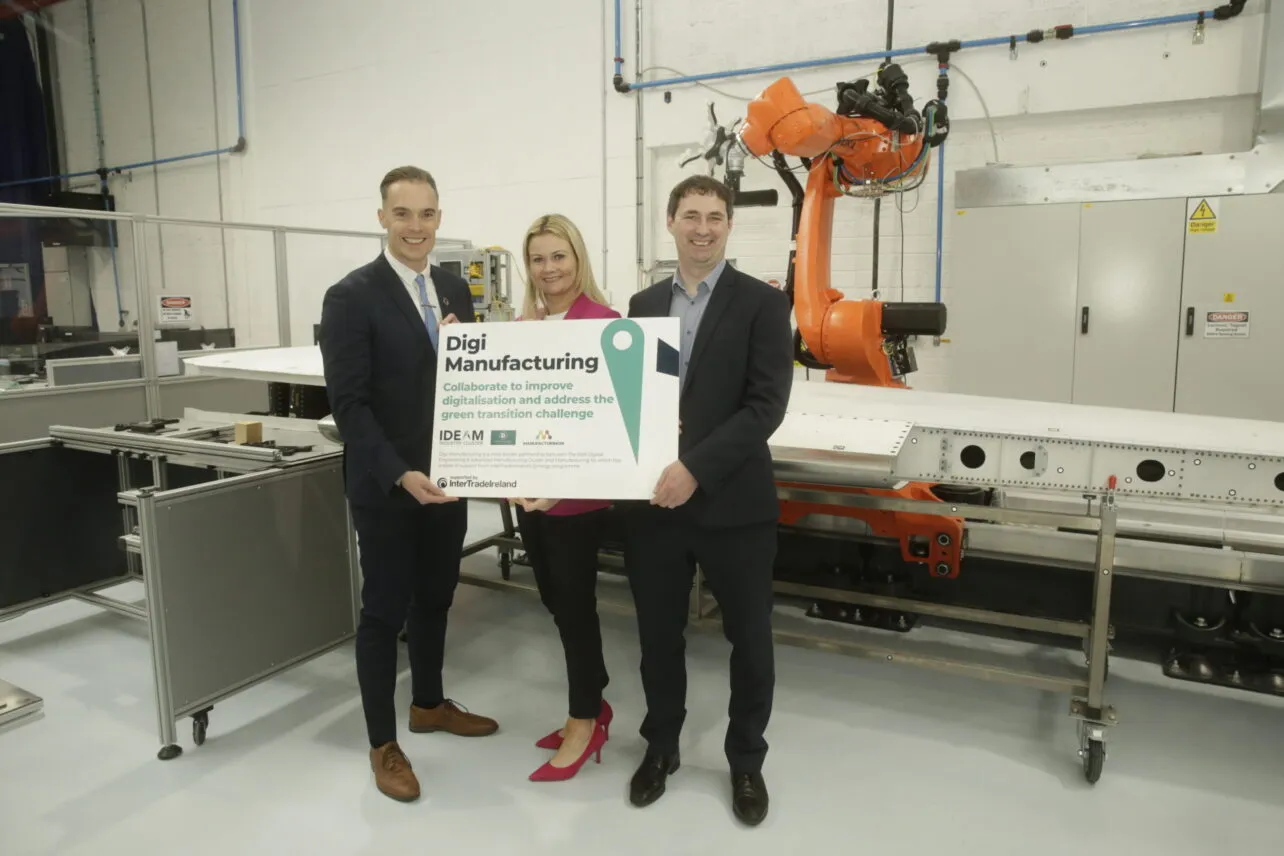Digi Manufacturing 2.0 programme at TUS is officially launched
A Digi Manufacturing 2.0 programme developed by IDEAM (Irish Digital Engineering and Advanced Manufacturing) at Technological University of the Shannon (TUS), Moylish Campus and Manufacturing Northern Ireland is bringing together SMEs on a cross-border basis to establish and create new business opportunities with a strategic lens on their digital and green potential. The overarching aim of Digi Manufacturing 2.0 is to create and enhance new cross-border strategic value chains and enhance the green uptake between both Manufacturing Northern Ireland and IDEAM Cluster manufacturing SMEs.
Dr. Liam Brown, Vice President Research, Development & Innovation, TUS said, “Industry clusters have proven to drive regional economic development due to the significantly greater increases in innovation and technology applications and commercialisation of these applications. TUS is delighted to form part of the Digi Manufacturing 2.0 project with the support of the unique collaboration between IDEAM Cluster and Manufacturing NI, funded by InterTradeIreland acting as a real catalyst for bringing together the key stakeholders from industry, academia, and government. This will make a real impact on the growth of the all-island advanced manufacturing ecosystem with a particular emphasis on the digital and green transition of the sector as a whole.”
The Digi Manufacturing 2.0 project is being delivered with support from InterTradeIreland’s Synergy initiative. Synergy is a cross-border cluster initiative set up by InterTradeIreland, the cross-border trade and business development body. It aims to scale cross-border collaboration among SMEs and other players such as universities, third-sector organisations and government agencies using cluster and networking supports with a particular focus on meeting 2050 Net Zero and Global Green Deal targets.
Northern Ireland’s manufacturing sector is creating jobs at a greater rate than the UK as a whole, new employment data suggests. The latest labour market report from the Northern Ireland Research and Statistics Agency (Nisra) recorded 89,510 jobs in the sector during March 2022, the highest for 19 years.
Dr. Jamie Meehan, Cluster Manager, IDEAM said, “At IDEAM, we believe that this Digi Manufacturing project 2.0 will foster new collaboration opportunities for manufacturing SMEs across the island of Ireland and beyond. Connecting like-minded SMEs to unlock new data-driven energy efficiency ideas and collectively solve similar challenges, acts as a real catalyst for change in the manufacturing sector. Establishing trust between the key stakeholders can ignite fruitful opportunities. Together, we can build a unique ecosystem to support businesses to collaborate, innovate and grow.”
Mary Meehan, Deputy CEO at Manufacturing NI added, “Companies need to enhance their competitiveness through the decarbonisation of their manufacturing processes in a sustainable manner. Considering this, through Digi Manufacturing 2.0, collectively we will support industry with its digitalisation and green efforts. We are delighted to be part of the second iteration of this InterTradeIreland funded Synergy project in collaboration with IDEAM.”
Alison Currie, Director of Innovation and Entrepreneurship at InterTradeIreland (ITI) commented, “InterTradeIreland is delighted to continue to support this cross-border Digi Manufacturing collaboration between IDEAM Cluster and Manufacturing NI through our Synergy programme. Co-operation and joined-up thinking in areas such as green transition and the decarbonisation of the manufacturing sector are key areas for all-island collaboration. Digi Manufacturing 2.0 is an example of how we work with industry, clusters and networks to support SMEs to increase their productivity and competitiveness. Enabling companies in Ireland and Northern Ireland to work together through strong collaboration to find common solution pathways will help accelerate business growth potential and drive wider economic benefit.”


